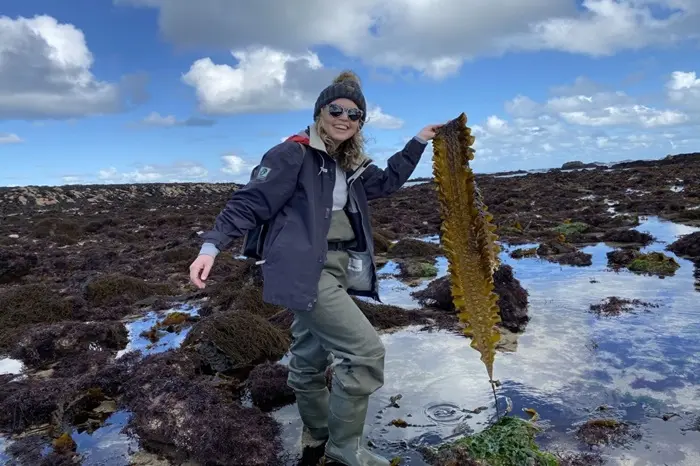The fashion industry, long criticized for its environmental footprint, may soon see a shift towards more sustainable practices, thanks to an innovative approach from Brazilian startup Phycolabs. The company is currently developing threads made entirely from seaweed, offering a potential eco-friendly alternative to traditional materials.
At the heart of this innovation is textile designer Thamires Pontes, who, after more than a decade in the industry, is determined to address the sector’s environmental challenges. Having worked extensively in textile production, Pontes has grown increasingly disillusioned with the negative consequences of industrial fabric manufacturing.
“After visiting factories in China, I was overwhelmed by the scale of the operations,” Pontes recalls. “They’re massive, and it became impossible to ignore the environmental toll. The industry consumes vast amounts of water and chemicals, which is incredibly damaging.”
The fashion industry, notorious for its heavy reliance on water and chemicals throughout its supply chain, faces mounting pressure to adopt more sustainable practices. Pontes believes seaweed-based textiles could be a game-changer. “The entire fashion value chain is fraught with challenges, but by working with farmed seaweed, we can ensure traceability and address one of the industry’s biggest environmental problems,” she explains.
Phycolabs aims to leverage the sustainable nature of seaweed farming to produce environmentally friendly fabrics, potentially reducing the industry’s dependence on resource-heavy materials. While still in the development phase, seaweed threads could offer a viable solution for brands seeking to minimize their ecological impact.
As global demand for sustainable fashion grows, innovative approaches like those being developed by Phycolabs may hold the key to transforming the industry’s future.
Related Topics:
How to Style a Sweatshirt Dress
How to Wear a Bodycon Dress Casually

